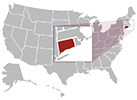
Pharmacy technicians work under the direct supervision of a licensed pharmacist.
Their primary function is to assist the pharmacist by ensuring that medication is accurately sorted and labeled, counted, liquids are mixed and measured, as well as keeping track of all patient dosages that have been prescribed.
Pharmacy technicians work in a variety of settings, from hospital pharmacies, grocery and drugstore pharmacies, private care facilities, etc.
Many of these candidates work full-time and some work part-time.
Page Navigation
Licensing Requirements to Become a Pharmacy Technician in Connecticut
Candidates must first obtain a high school diploma or GED.
Training may be acquired through hands-on training in the job under the supervision of a licensed pharmacist or through post-secondary education.
Formal education is not required in the state of Connecticut, but it does help to secure a job.
Candidates are required to obtain certification through the Pharmacy Technician Certification Board.
Candidates must pass the national examination in order to be qualified as a Certified Pharmacy Technician (CPhT).
Upon receiving certification and once employment has been gained with a licensed pharmacist, the candidates may apply for their license through the state.
These licenses must be renewed every year by the 31st of March. Currently, the renewal fee is $50.
5 Pharmacy Technician Schools in Connecticut
1. Manchester Community College, Manchester, CT
The school offers a 134-hour Pharmacy Technician Certificate program.
The program is board certified and candidates meet three times a week on Mondays, Wednesdays, and Thursdays from 6 pm to 9 pm online.
The full tuition for the course is $1,600.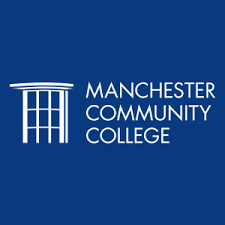
The tuition includes PTCB exam fee, textbooks, and workbooks.
Students may participate in an optional 180-hour internship.
The program prepares students for an entry-level Pharmacy Technician position and the program consists of 84 hours of virtual classroom attendance and 50 additional hours of coursework which is independent.
Students require a grade of 70 or higher to pass, may not miss more than two classes, and may not leave 30 minutes early or enter 30 minutes late as these will count as absences.
Furthermore, the 80-hour internship is voluntary and students who meet certain criteria may qualify for the Hartford Healthcare internship.
2. Middlesex Community College
The school offers a Pharmacy Technician Certificate program completely online.
The program is a non-credit program that consists of a total of 84 hours.
The program prepares students for an entry-level position.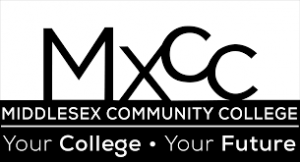
Upon completion, students are eligible to sit for the Pharmacy Technician Certification Board (PTCB) national certification exam.
Topics range from medical terminology, drug compounding, billing, and insurance reimbursement, dosage calculation, prescription dispensing, and defining drugs by generic and real descriptions, to mention a few.
Tuition for the program is $1,599.
3. Asnuntuck Community College
Asnuntuck Community College offers a Pharmacy Technician Certificate program.

The program is comprised of theory, discussions, as well as practical problem-solving exercises.
Upon successful completion of the program, students are eligible to sit for the Pharmacy Technician Certification Board (PTCB) exam.
The program is for a duration of six months and includes 72 hours of classroom and hands-on instruction, a 14-hour career development course, and an optional 80-hour externship with Baystate Medical Center.
Students are taught by a certified pharmacist. Tuition is $2,276.
4. Capital Community College
Capital Community College offers a Pharmacy Technician Certificate program, completely online.
Students have six weeks of access to the online program that consists of 24-course hours.
Tuition for the program is $115.00.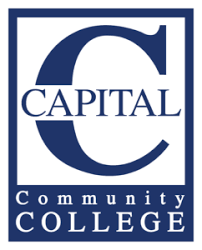
Students cover a range of course materials such as laws and regulations that govern this industry, and how to address customers.
Keep in mind that this course will not sufficiently prepare students for the national examination.
However, it will help to prepare students for the advanced course which, in turn, will prepare students for the national certification examination.
5. Housatonic Community College
Housatonic Community College offers an online Pharmacy Technician Certificate program.
The students attend classes on Tuesdays and Thursdays from 6 pm to 9 pm.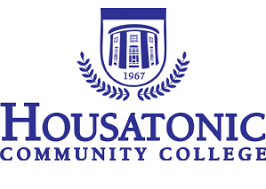
The tuition for the program is $1,500 which includes textbooks and the examination fee.
This is a 14-week comprehensive program that is comprised of 56 synchronous class hours as well as 78 hours of asynchronous attendance hours.
Upon successful completion of the program, students are eligible for the Pharmacy Technician Certification Board (PTCB) national certification exam.
Students cover various coursework throughout the course that will help to prepare them for entry-level positions in the industry.
Course materials include medical terminology, patient and medication safety, pharmacy law, reading and interpreting prescriptions, medication safety, and how to calculate dosages and IV flow rate, among other topics.
Pharmacy Technician Schools in Connecticut
Top 5 Schools in Connecticut
| School Name | Address |
|---|---|
| Manchester Community College, Manchester, CT | Great Path, Manchester, CT 06040 |
| Middlesex Community College | 100 Training Hill Rd, Middletown, CT 06457 |
| Asnuntuck Community College | 170 Elm St, Enfield, CT 06082 |
| Capital Community College | 950 Main St, Hartford, CT 06103 |
| Housatonic Community College | 900 Lafayette Blvd, Bridgeport, CT 06604 |
Pharmacy Technician Salary in Alabama
There are three salary ranges as candidates progress in this industry and in this field, with varying levels of experience:
- Entry level – $32,849
- Mid-career – $40,300
- Experienced – $49,279
Average Salary of Pharmacy Technicians in Connecticut
| City Name | Salary |
|---|---|
| Bridgeport | $42,302 |
| New Haven | $40,400 |
| Hartford | $40,100 |
| Stamford | $42,900 |
| Waterbury | $40,200 |
| Norwalk | $42,900 |
| Danbury | $41,400 |
| New Britain | $40,200 |
| West Hartford | $40,100 |
| Greenwich | $42,900 |
Regional Salary in Connecticut
| Region | Employed | Avg. Annual Salary | Avg. Hourly Pay | Top 10% Annual Salary | Bottom 10% Annual Salary |
|---|---|---|---|---|---|
| Bridgeport-Stamford-Norwalk, CT | 1,040 | $44,060 | $21.18 | $57,880 | $36,700 |
| Danbury, CT | 260 | $43,870 | $21.09 | $57,270 | $34,890 |
| Hartford-West Hartford-East Hartford, CT | 1,580 | $42,640 | $20.5 | $56,270 | $35,250 |
| New Haven, CT | 1,040 | $43,490 | $20.91 | $57,420 | $35,540 |
| Norwich-New London-Westerly, CT-RI | 390 | $43,450 | $20.89 | $56,340 | $34,620 |
| Waterbury, CT | 250 | $41,060 | $19.74 | $52,890 | $32,460 |
* Employment conditions in your area may vary.
Frequently Asked Questions
What is the highest level of pharmacy technician?
The highest a candidate can move up the ladder for this position is a pharmacy technician III.
This requires additional training and extensive experience.
Is being a pharmacy technician a highly stressful job?
Yes, this job can be psychologically and emotionally taxing for a candidate.
It is extremely important to ensure that dosages are accurate as the wrong dosage in amount or type may pose serious health risks for clients.
Customers can be very rude and impatient and it can be quite challenging to deal with these types of customers.
It’s important to understand that these demands form part of the day-to-day routine.
What is the next step after being a pharmacy technician?
As pharmacy technicians gain experience and knowledge in their field, they may be promoted to supervisory roles.
In particular, those in specialty roles.




